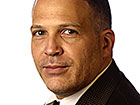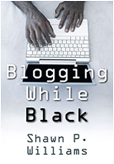Howard Witt a finalist for 2008 Pulitzer Prize in Journalism
It is my pleasure to congratulate Howard Witt for being a finalist for a 2008 Pulitzer Prize in Journalism. Howard, Southwest Bureau Chief of the Chicago Tribune, was a finalist in the category of National Reporting for his examination of racial issues in America.
I count Mr. Witt as a friend of Dallas South. Howard ran a quote from me in a September issues of the Chicago Tribune, and I gained a whole new audience as a result. I’ve made sure to keep up with what he’s been up to since he has been way ahead of the curve as it relates to covering race in America.
I’m going to repost an interview I conducted with Howard back in October for those of you who may not have been part of the Dallas South family back then. Congrats again to Howard and many happy returns.
Last March, Howard Witt wrote an article in the Chicago Tribune about the sentencing of a 14 year-old girl in my hometown of Paris, Texas. In the 6-plus months that have followed, the landscape of the internet, the civil rights movement, and the media has greatly changed.
Some, including yours truly, attribute the outcry in the ShaQuanda Cotton and Jena 6 cases directly to the work of Mr. Witt. I’d add to that the newfound interest the media has with Black Bloggers. Howard Witt granted an outstanding interview to Dallas South where he talks about his career, the media, and his work over the past few months.
Dallas South Blog: First, tell me a little about how your career has led you to become Southwest Bureau Chief of the Chicago Tribune.
Howard Witt: I’ve been with the Tribune since graduating from the University of Michigan in 1982, with the exception of a couple of years (1999-2001) in New York and Washington.
At the Tribune I’ve done many different things: I’ve been a national correspondent based in the Midwest and Los Angeles; a foreign correspondent based in Canada, South Africa and Russia; the National/Foreign editor; the editor in charge of the Tribune’s Internet sites back when they were first launching a decade ago; the paper’s Chief Diplomatic Correspondent based in Washington; and, since 2004, the paper’s Southwest Bureau Chief based in Texas.
DSB: Your paper, and more specifically you, have lead national media coverage on some prominent cases that have highlighted race as it relates to the justice system (Shaquanda Cotton, Jena 6, etc.). Why have you been drawn to these types of stories?
HW: Tt is true that I’ve created a ‘civil rights’ beat for myself this year, writing more than two dozen stories on topics relating to racial discrimination, disparities and injustice here in the South. (If your readers have an interest, many of these stories can be found at www.chicagotribune.com/howardwitt .
I think it’s vitally important that the mainstream media tell these stories, because many Americans-especially white Americans-cling to the comfortable assumption that our nation’s civil rights struggles remain tidily locked away in the dark old past of lynchings, Jim Crow, Little Rock and Bull Connor. In fact, I think you can make an argument that racial discrimination is just as serious and wide-reaching today-it just takes different, and much more subtle, forms. And what is going inside the small backwoods towns of east Texas and Louisiana deserves to have a bright light shone upon it.
What really got me curious about this topic was a story I wrote in June, 2005, about a mentally retarded black man named Billy Ray Johnson who was beaten and left for dead by four young white men in the small town of Linden, Texas. The whites invited Johnson to a ‘pasture party’ and made him dance and sing for their entertainment while hurling racial epithets at him, then knocked him unconscious (he suffered a brain hemorrhage) and dumped his lifeless body next to a trash dump.
Local juries in Linden-a town that features a mural of black slaves picking cotton on the wall of the local post office-refused to convict Johnson’s attackers of anything more than minor misdemeanors, despite the fact that their assault left him with permanent brain damage and confined in a nursing home for the rest of his life.
None of the attackers served more than 60 days in the town jail for their crime. After my story about this miscarriage of justice appeared, the Southern Poverty Law Center reacted to it by filing a civil lawsuit on Johnson’s behalf against his attackers, and earlier this year Johnson won that suit and a jury award of $9 million.
So that was my introduction the fact that there was a lot of unseen nastiness going on in small southern towns.
DSB: How has the Tribune responded to your covering these stories? Has the response changed over the years?
HW: I have always received very strong support from all of the Tribune’s top editors, who continue to believe in the crucial importance of journalists digging out important stories, no matter the expense in time or money. This is, alas, an increasingly rare attitude in these days of massive retrenchments and financial panic at many of the nation’s newspapers, which are watching in terror as readers migrate to the Internet.
Yet for the stories I write, the Internet has been a tremendous boon: It is thanks to broad and instantaneous distribution of my stories via blogs like yours, emails and reposting on other websites that my work can have a much stronger national impact. It was, after all, Internet-driven petition drives and protests that built up much of the political pressure that led to Shaquanda Cotton’s release and inspired more than 20,000 marchers who showed up in Jena last month. Has the response of my editors to my work changed over the years? Only in the sense that they, too, want to push Internet distribution as quickly as possible. Just this week, for example, they readily agreed to publish a story I did about what happened to the “white girl” in the Shaquanda Cotton case on the Internet on Monday afternoon, many hours before it appeared in the next morning’s printed newspaper. That would have been unheard of just a few years ago.It’s ironic that on a night back in September when I originally sent Mr. Witt an e-mail requesting an interview, he replied that he wanted to interview me for a story that he was doing about the Jena rally. It’s been an interesting road in the 4 weeks since then that neither of us could have predicted. I pray that the work that Howard Witt has done this year is recognized. Here’s part two of his Dallas South Interview.
Dallas South Blog: Do you see any similarities between the Shaquanda Cotton case and the Mychal Bell/Jena 6 case?
 Howard Witt: Yes, there are many. The similarities start with the way the criminal justice system functions in these small towns, where nearly all of the power (police, prosecutors, judges and school officials) resides in white hands.
Howard Witt: Yes, there are many. The similarities start with the way the criminal justice system functions in these small towns, where nearly all of the power (police, prosecutors, judges and school officials) resides in white hands.
This leads to the perception-based on lots of evidence-that black youths like Shaquanda Cotton or the Jena 6 teenagers are being treated more harshly than their white peers in school and in the courts.
The stories are also similar in their complexity: Often we are talking about kids who do not have unblemished records themselves and therefore might not be the kind of instantly-sympathetic characters that many journalists look for when writing stories about racial issues. These are not simple good-guy/bad-guy stories, but rather much more nuanced tales about the appearance of disproportionate or excessive prosecutions based on race.
In the Jena 6 case for example, I kind of cringe when people oversimplify the story and shout “Free the Jena 6!” It is true, after all, that some black kids (exactly who is in dispute) jumped a white kid at the high school, knocked him unconscious and beat and kicked him while he was lying on the ground. It was not a “schoolyard fight.”
But I’ve always believed that you have to view that incident in the larger context of the racial tensions that had been roiling Jena for months before that, starting with the infamous hanging of the nooses from the tree in the high school courtyard.
What’s more, the question has always been about the proportionality of the charges: The Jena 6 teens were initially charged by the local prosecutor with attempted murder, even though the white victim was not seriously injured, while other white youths in the town who had earlier attacked blacks were charged either with misdemeanors or nothing at all.
DSB: When did you realize that there was a movement on the internet being lead by African-American Bloggers?
HW: It was within a few days of the publication of my first Shaquanda Cotton story, back in March. I started noticing a number of blogs concerned with African American issues were re-posting the story and generating lots of heated comments about it, while at the same time I was being flooded with hundreds of emails from readers who had come across the story in various places on the Internet very distant from chicagotribune.com.
The more I looked at these blogs-and your Dallas South Blog featured some of the earliest and most thoughtful commentaries-the more I realized that they were interconnected and, potentially, very influential. In fact I wrote an early story remarking on this phenomenon, which can be found here.
DSB: You wrote a recent article in the Tribune about Black Bloggers. What are your thoughts on what you have seen from these citizen journalists?
HW: Well, I’m really in awe of them, frankly. Many journalists have been inclined to downplay or dismiss bloggers as crazy nerds with too much time on their hands spouting hysterical opinions while sitting bleary-eyed in their underwear in front of their computer screens at 2 a.m. (Okay, maybe some are wearing bathrobes.) 
But this is a nonsensical stereotype, as I’ve come to realize. While it is true that there’s a lot of garbage out there in the blogosphere that’s not really worth the time it takes to click on it, there are many more very intelligent and thoughtful bloggers whose commentaries and observations amplify and extend the work that mainstream journalists are doing.
And the black blogosphere in particular looks like it’s growing into a very formidable force. As I remarked in my story about black bloggers on the eve of the Jena demonstration, the big-name civil rights leaders like Rev. Jesse Jackson and Rev. Al Sharpton were following the bloggers to Jena, not leading them. Were it not for black blogs and black talk radio, tens of thousands of ordinary black Americans would never have climbed aboard buses for a 20-hour trip to such a remote little Louisiana town.
Ultimately I see a very interesting symbiosis emerging. The world still needs professional journalists to use our investigative and interpretive skills to uncover important stories, which is not something that “citizen journalists” will ever be able to do with any consistency. But telling the story has traditionally been where the role of a journalist stops.
Now bloggers are taking those stories and giving them life, distributing them to a much wider audience that might never read a newspaper and injecting them with political fervor and activism. Which, as we have seen this year in the cases of Shaquanda Cotton and the Jena 6-not to mention Genarlow Wilson and even Don Imus-can have real effects.
DSB Why do you think it took the national media almost 4 months after your original article to cover what was happening in Jena.
HW: It was the complexity of the story, as I mentioned above, which eludes the grasp of reporters-especially TV reporters–in search of simple sound-bites. And it was the sensitivity of anything having to do with race in our society-many reporters shy from such controversial stories.
DSB: What are your thoughts on the debate that has taken place since the Jena Rally regarding how the popular media covers race issues and people of color?
HW: Well, to the extent that people are talking about this issue, I think that’s important. But I have been disturbed-though not surprised-by the backlash from many whites in Jena and elsewhere across the country, who insist that somehow the whole story has not been told and that the media has twisted the Jena story to make the white townsfolk look bad.
I can’t vouch for what other reporters have done with this story, but for my part, I tried very hard to get the white leaders of the town to speak with me when I was down there reporting my original story back in May. Most of them refused my interview requests.
Nor did reporters invent the facts about Jena, including the fact that most of Jena’s white voters cast their ballots for former Ku Klux Klan leader David Duke when he ran for Louisiana governor, or the fact that there’s a white barbershop in town where they won’t cut black men’s hair for fear of dirtying their combs and scissors and angering their white patrons.
DSB: Do you think there will be any changes in the coverage moving forward?
HW: Not on my part. I’m continuing to follow the trials of the Jena 6 as they progress. And I’m always on the lookout for other important civil-rights stories that should be told.
I think we can all hope that, in the wake of the Jena demonstration, other reporters will come to understand that there is a huge undercurrent of anger and concern in black America these days that we all ignore at our society’s peril.
DSB: Thanks for your time





